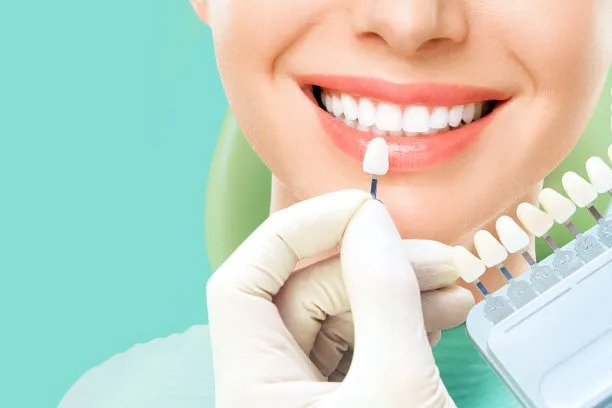Summary: Dental implants have revolutionized the field of oral health, providing a transformative solution for individuals with missing teeth. This article explores how dental implants not only restore functional and aesthetic aspects of smiles but also significantly boost self-confidence across all age groups. By examining their impact on oral health, the psychological benefits of improved self-esteem, their accessibility to various age groups, and the advancements in technology making them more effective, we underscore the importance of dental implants in modern dentistry.
1. Enhancing Oral Health with Implants

Dental implants play a crucial role in restoring oral health by replacing missing teeth. Unlike traditional dentures, implants mimic the structure of natural teeth, providing a sturdy foundation for prosthetic replacements. This structural similarity greatly enhances chewing efficiency, allowing individuals to enjoy their favorite foods without discomfort.
Additionally, dental implants help preserve the jawbone. When a tooth is lost, the bone that once surrounded its roots can begin to deteriorate. Implants prevent this bone loss by stimulating the jawbone, promoting its health and strength, which is critical for overall oral structure and alignment.
Moreover, the integration of implants into the jawbone fosters a stable environment for teeth and surrounding tissues, significantly reducing the risk of gum disease. Improved oral hygiene and care becomes easier with implants, leading to better long-term oral health outcomes.
2. Boosting Self-Confidence and Quality of Life
The psychological benefits of dental implants are profound, as these devices dramatically enhance self-esteem and confidence. Individuals with missing teeth often experience feelings of self-consciousness, negatively impacting social interactions. By restoring a complete smile, dental implants empower individuals to engage more freely in personal and professional environments.
Furthermore, the natural appearance of dental implants—designed to blend seamlessly with existing teeth—contributes to an improved self-image. People feel more comfortable smiling, talking, and laughing, leading to enriched social connections and overall well-being.
Studies have shown that individuals with implants report a better quality of life, reduced anxiety in social situations, and a greater sense of independence. This transformation highlights how improvements in oral health through dental implants can lead to significant positive changes in one’s personal and social experiences.
3. Accessible Solutions for All Age Groups
One of the most significant aspects of dental implants is their accessibility for people of all ages—from children to seniors. For younger patients, dental implants can serve as a long-term solution after the loss of permanent teeth, reducing the harmful effects of missing teeth on developing jaws. For older adults, implants offer renewed functionality and aesthetics, making it easier to maintain an active lifestyle.
Moreover, advancements in dental technology have made implants more attainable than ever before. Many clinics now offer flexible financing options, ensuring that individuals can receive the necessary care despite financial constraints. With various types of implants and materials available, dental professionals can cater to diverse patient needs and preferences.
Education and awareness about the benefits of dental implants have also increased, encouraging many to seek professional advice about their candidacy for the procedure. As dental implants become increasingly popular and refined, their role in restorative dentistry continues to expand.
4. Technological Advancements in Dental Implants
The field of dental implants has witnessed significant technological advancements that enhance both effectiveness and patient comfort. Image-guided implant placement utilizes sophisticated imaging technology to ensure precise positioning of the implants, minimizing surgical risks and improving outcomes.
Furthermore, the development of biocompatible materials has evolutionized implants, promoting rapid healing and integration with the jawbone. These materials not only increase the lifespan of the implants but also provide a more comfortable experience for patients during the healing phase.
Moreover, ongoing research continues to refine techniques and expand the options available to patients. Innovations such as mini implants and zygomatic implants offer solutions for traditionally challenging cases, making dental implants a versatile option for a wider range of individuals.
Summary:
In conclusion, dental implants have revolutionized modern dentistry by transforming smiles and overall oral health. They have overcome challenges associated with missing teeth, ultimately boosting self-confidence and improving the quality of life for individuals of all ages. With advancements in technology and greater accessibility, dental implants are more attainable than ever, standing as a beacon of hope for many seeking to restore their smiles.
This article is compiled by Vickong Dental and the content is for reference only.
Vickong Dental
Vickong Dental is a large medical group established in Hong Kong in 2008 by professors from well-known medical universities in Guangdong and Hong Kong, as well as medical doctors from key national '985' universities (including Master's supervisors and senior professors). The chain of branches brings together expert dentists with PhDs and Master's degrees from Hong Kong and Mainland China, committed to providing high-quality dental treatment.
"Vickong Dental Practices the University Motto of 'Healing and Serving Society,' with a Stable Operation for Sixteen Years. It Has Been honored with Hong Kong Enterprise Leaders's Choice,' and is a Global Trusted Implant Center for the Nobel Implant System. Recommended by Hong Kong Metro Broadcast and Guangdong Television, it Serves Customers from Over Thirty Countries and Regions, Gaining the Trust and Favor of Citizens from the Guangdong-Hong Kong-Macau Greater Bay Area and Surrounding Cities.

Thousands of customers' unanimous praise
The most recognized and highly recommended dental service by customers in the Guangdong-Hong Kong-Macau Greater Bay Area
We Ensure You Receive Detailed Care and Attention Here
Hong Kong standards, Shenzhen prices, Your Trusted English-speaking dentists

Vickong Dental Medical-Grade Instrument Disinfection Process
Vickong Dental Medical-Grade Instrument Disinfection Process

Vickong Dental Chain: A Warm and Comfortable Environment for Treatment






Appointment Hours

Q&A
Why choose Vickong Dental?
Vickong Dental practices the university motto 「Medicine to Benefit Society」, with each branch bringing together highly qualified dentists with doctoral and master’s degrees from Hong Kong and the Mainland, and has maintained seventeen years of steady operation。Recipient of 「2024 Hong Kong Enterprise Leaders Brand」, 「2025 Hong Kong Enterprise Leaders Brand」, a Nobel Biocare Global Trusted Implant Center, and a brand recommended by Metro Radio Hong Kong and Guangdong TV。
To date, we have served customers from more than thirty countries and regions,earning exceptionally high word-of-mouth recognition and trusted recommendations from residents across the Guangdong-Hong Kong-Macao Greater Bay Area and surrounding cities
We have eight major branches in Zhuhai、Shenzhen,and a consultation and service assurance center in Hong Kong,so you can book a free consultation at any time for any questions,which is very reassuring.
If I do not accept the quotation after the CT scan, will I be charged??
No! As long as the actual treatment has not started, you will not be charged any fees.
Will there be any additional charges during the treatment process?
No, there won’t be any additional charges. Before treatment begins, we will clearly explain the treatment plan and its corresponding fees. Only after the patient agrees and signs the consent form will we proceed with the dental service.
Can I pay in Hong Kong dollars?
Yes. Vickong Dental accepts payment in Hong Kong dollars. The amount will be converted based on the exchange rate of the day, and the applicable rate will be clearly communicated to you in advance.
Can I reschedule my appointment at any time?
Yes. Please contact us via **WeChat** or **WhatsApp** as early as possible, providing your original appointment time and details, along with your preferred new date and time slot for rescheduling.













